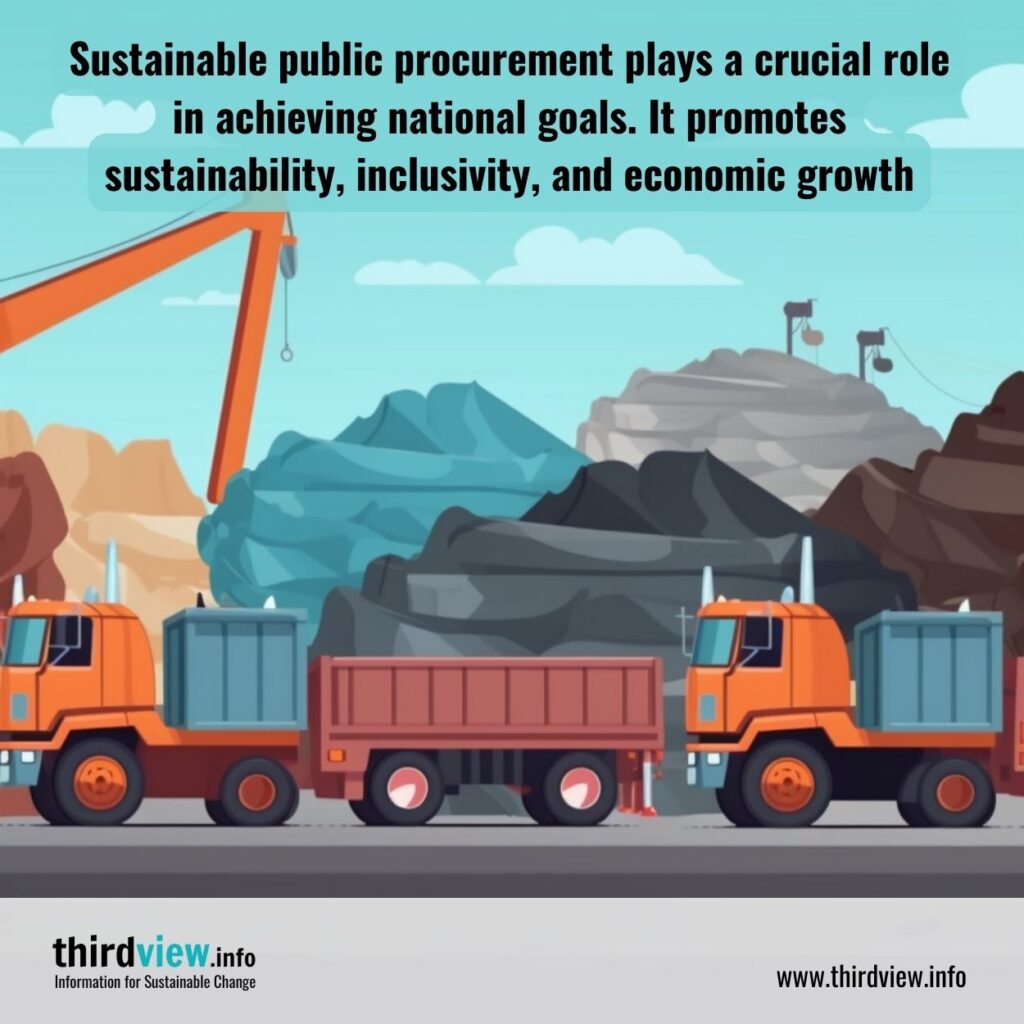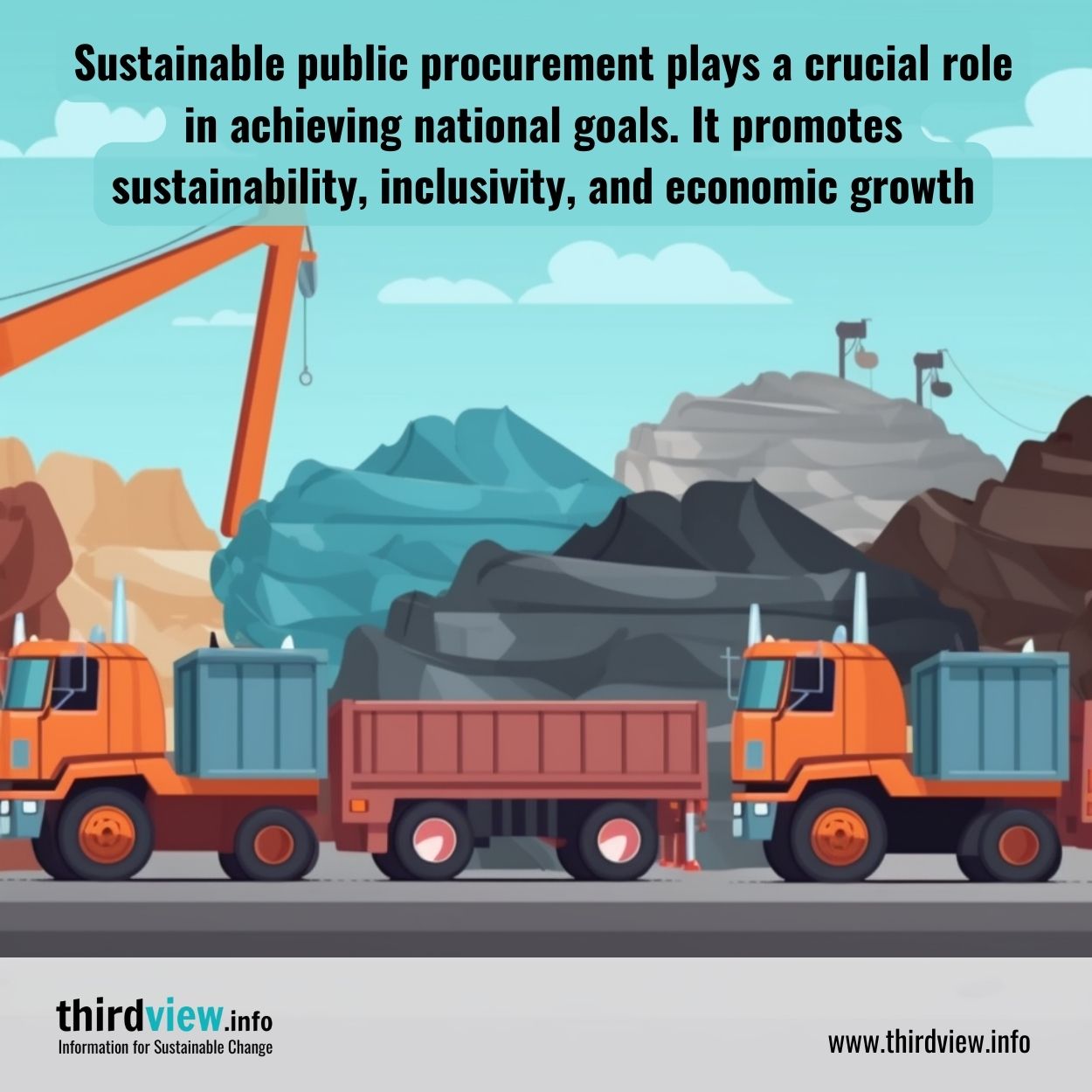Sustainable public procurement is a strategy that promotes the selection of products and services that have a minimal environmental impact and contribute to social development. This practice goes beyond cost-cutting and is focused on achieving long-term goals of sustainability, inclusivity, and economic growth. Sustainable public procurement is a key tool that governments can use to address major global challenges such as climate change, poverty, and inequality. In this blog post, we will discuss the key role that sustainable public procurement plays in achieving national goals.
Reduced Environmental Impact
By selecting environmentally friendly products and services, governments can reduce their environmental footprint and promote sustainable consumption and production. Through sustainable procurement practices, governments can set an example for the private sector, demonstrating that environmental sustainability is a valuable goal. Governments can use their procurement power to create demand for green products and services, which encourages companies to innovate and develop more sustainable solutions.
Improved Social Outcomes
Sustainable public procurement also has social benefits. By selecting products and services that are made by companies with good labour practices, that source from under-represented communities or that support social entrepreneurship, governments can promote diversity and inclusion. This can help to boost the development of these communities and advance social justice.
Savings in Costs
Sustainable procurement can also provide cost savings to governments. For example, by selecting energy-efficient products that consume less energy, governments can reduce energy bills, and generate long-term savings. By increasing competition among suppliers, governments can help to lower prices of environmentally friendly goods which can save them the costs of using alternative, more environmentally-harming goods.
Achieving National and International Goals
Sustainable procurement can be used to achieve national and international goals such as the Climate Change Agenda’s Sustainable Development Goals. Governments can use procurement to meet set reduction targets, for example, setting the goal to reduce greenhouse gas emissions by purchasing low-carbon products across industries as well as supporting companies that embrace sustainable production.
Fostering Innovation and Growth
By creating a demand signal for sustainable products and services, governments can encourage the private sector to come up with innovative solutions. This drives technological advancement and can lead to the creation of green jobs and the promotion of economic growth.
Sustainable procurement should be the focus of all governments, given the potential benefits it offers for a country’s economy, environment, and social outcomes. By making it part of a country’s long-term strategy for development, we can ensure that we associate national goals with green and inclusive economic growth. With an increased demand for sustainable products and services, companies will have to adapt and become more environmentally responsible, driving progress that has benefits for all people, the economy, and the planet.


